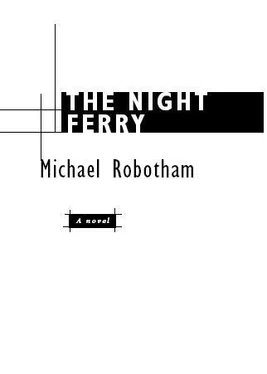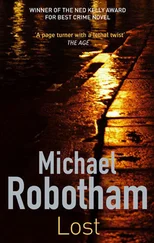She rolls her eyes. “I’m giving you the five -minute version. That’s what you paid for.”
I nod.
“I saw her the first time in January. I remember because it was so cold that day.” She motions to the sink. “Cold water only. Like ice. They brought her to watch. Her eyes were bigger than this.” The prostitute makes fists with her hands. “I thought she was going to throw up. I told her to use the sink. I knew she was never going to make it as one of us. It’s only sex. A physical act. Men come and go. They cannot touch me here or here,” she says pointing to her heart and her head. “This girl acted as though she was saving herself. Another fucking virgin!” She flicks the ash from her cigarette.
“What happened?”
“Time’s up.” She holds out her hand for more money.
“That wasn’t five minutes.”
She points to the wall behind me. “You see that clock? I lie on my back and watch it for a living. Nobody judges five minutes like Ido.”
I hand her another twenty euros. “You said she was pregnant.”
“That was the next time I saw her.” Eve mimes the bump. “She was at a doctor’s clinic in Amersfoort. She was in the waiting room with a Serbian girl. Both of them were pregnant. I figured it was a welfare scam or they were trying to stay in the country by having a baby.”
“Did you talk to her?”
“No. I remember being surprised because I thought she was going to be the world’s last virgin.” The cigarette is burning near her knuckles.
“I need the name and address of the clinic.”
“Dr. Beyer. You’ll find him in the book.”
She crushes the cigarette beneath a sling-back shoe. A knock on the glass catches her attention. A man outside points first to me and then to Eve.
“What’s your name?” she whispers conspiratorially.
“Alisha.”
She reaches for the door. “He wants both of us, Alisha.”
“Don’t open it!”
“Don’t be so shy. He looks clean. I have condoms.”
“I’m not a—”
“Not a whore. Not a virgin either. You can make some money. Buy some decent clothes.”
There is a small commotion outside. More men are peering through the window. I’m on my feet. I want to leave. She is still trying to convince me. “What have you got to lose?”
I want to say my self-respect.
She opens the door. I have to squeeze past her. Her fingernail runs down my cheek and the tip of her tongue moistens her bottom lip. Men crowd the passageway, where the cobbles are slick and hard. I have to shoulder my way past them, smelling their bodies, brushing against them. My foot strikes a step and I stumble. A hand reaches out to help me but I slap it away irrationally, wanting to scream abuse at him. I was right about Samira. Right about the baby. That’s why Cate faked her pregnancy and carried Samira’s photograph.
A small patch of gray sky appears above the crush. Suddenly I’m out, in a wider street, drawing deep breaths. The dark water of the canal is slashed with red and lilac. I lean over a railing and vomit, adding to the color.
My mobile vibrates. Ruiz is on the move.
“I might have found someone,” he says, puffing slightly. “I was showing Samira’s photograph around Central Station. Most people didn’t want to know but this one kid acted real strange when he saw the picture.”
“You think he knew her?”
“Maybe. He wouldn’t tell the truth if God Almighty asked him for it.”
“Where is he now?”
“He took off. I’m fifty yards behind him.”
The DI rattles off a description of a teenage boy in a khaki camouflage jacket, jeans and sneakers.
“Damn!”
“What’s up?”
“My mobile is running low. Should have charged it last night. Nobody ever bloody calls me.”
“I do.”
“Yeah, well, that just goes to show you should get a life. I’ll try to give you a cross street. There’s a canal up ahead.”
“Which one?”
“They all look the same.”
I hear music in the background and a girl shouting from the windows.
“Hold on. Barndesteeg,” he says.
Standing in the ocher glow of a streetlight, I open a tourist map and run my finger down the names until I find the street grid reference. They’re not far away.
Movies and TV shows make it look easy to follow someone and not be seen, but the reality is very different. If this were a proper police tail, we’d have two cars, a motorcyclist and two, maybe three officers on foot. Every time the target turned, someone new would be behind him. We don’t have that luxury.
Crossing over Sint Jansbrug, I walk quickly along the canal. Ruiz is a block farther east, heading toward me along Stoofsteeg. The teenager is going to walk straight past me.
The pavement is crowded. I have to step left and right, brushing shoulders with passersby. The air is thick with hashish and fried-food smells.
I don’t see him until the last moment. He’s almost past me. Gaunt-cheeked, hair teased with fingers and gel, he skips from the pavement to the gutter and back again, dodging people. He’s carrying a canvas bag over his shoulder. A bottle of soft drink protrudes from the top. He looks over his shoulder. He knows he’s being followed but he’s not scared.
Ruiz has dropped back. I take over. We reach the canal and cross the bridge, almost retracing my steps. The boy walks nearer the water than the buildings. If he wants to lose a tail, why take the open side of the street?
Then it dawns on me—he’s leading Ruiz away. Someone at the station must have known Samira. He didn’t want Ruiz finding them.
The teenager stops moving and waits. I walk past him. The DI doesn’t appear. The kid thinks he’s safe but doubles back to make sure.
When he moves again he doesn’t look back. I follow him through the narrow lanes until he reaches Warmoesstraat and then Dam Square. He waits near a sculpture until a slender girl appears, dressed in jeans and a pink corduroy jacket. Her hair is short and straight, the color of tea.
He argues and gesticulates, miming with his hands. I call Ruiz on the mobile. “Where are you?”
“Behind you.”
“Was there a girl at the station in jeans and a pink jacket? Dark haired. Late teens. Pretty for now.”
“Samira?”
“No. Another girl. I think he was trying to lead you away. He didn’t want you finding her.”
They’re still arguing. The girl shakes her head. He tugs at her coat sleeve. She pulls away. He shouts something. She doesn’t turn.
“They’re splitting up,” I whisper into my mobile. “I’ll follow the girl.”
She has a curious body, a long torso and short legs, with slightly splayed feet when she walks. She takes a blue scarf from her pocket and wraps it over her head, tying it beneath her chin. It is a hijab—a head covering. She could be Muslim.
I stay close behind her, aware of the crowds and the traffic. Trams joust on tracks that divide the wider roads. Cars and bicycles weave around them. She is so small. I keep losing sight of her.
One moment she’s in front of me and the next—Where has she gone? I sprint forward, looking vainly in doorways and shop windows. I search the side streets, hoping for a glimpse of her pink jacket or the blue of her hijab.
Standing on a traffic island, I turn full circle and step forward. A bell sounds urgently. My head turns. An unseen hand wrenches me backward as a tram washes past in a blur of noise and rushing air.
The girl in the pink jacket is staring at me, her heart beating faster than mine. The smudges beneath her eyes are signs of the premature or the beaten down. She knew I was following her. She saved me.
“What’s your name?”
Her lips don’t move. She turns to leave. I have to sprint several yards to get in front of her.
Читать дальше












